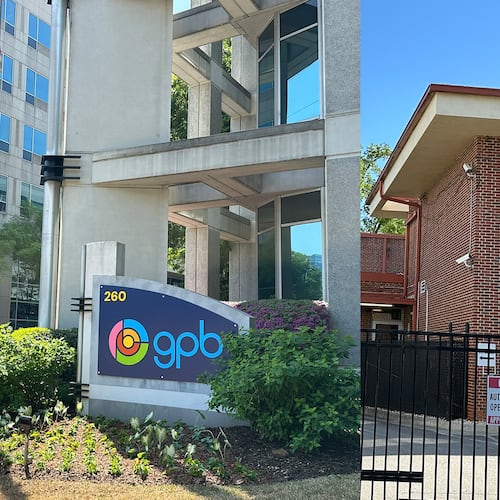Existing home prices continue to fall across the country, but the rate of decline in Atlanta is slower than the national average, according to a widely watched measure.
The most recent S&P Case-Shiller index, released Tuesday, showed the average price of metro Atlanta homes dropped 0.42 percent from March to April. But numbers that were not adjusted to account for seasonal changes — that can affect the strength of the market — showed the average home price has increased by 0.3 percent over the same period of time, a first since July 2007, according to the data.
Year-over-year, the average price of a metro Atlanta home dropped by 15 percent.
The 20-city index fell by 1 percent month-over-month and 18 percent year-over-year, but for the third month in a row the decline was not a record.
Thanks to the surge of building in metro Atlanta, the region's housing prices never soared as high as those in places such as Phoenix, San Francisco and southern Florida.
"We were never a 'bubble market,' " said Eugene James, division director for MetroStudy in Atlanta. "Our values didn't go up 25 percent, 30 percent, like other markets."
Buyers streamed into the Atlanta market, however, fueled by the steady growth of the economy, the aggressive use of low- and no-down-payment mortgages and the flow of new residents.
Eventually, construction of new homes outpaced growth — and the building continued even after sales began to slacken. A familiar formula was triggered: Slipping demand and surging supply sent prices south.
Atlanta's prices peaked in the spring of 2007 and then started sliding.
While the percentage drop here was less dramatic than elsewhere, the decline has wiped out almost a decade's worth of increases. The current average price of a home has fallen to the levels of December 2000.
Of course, averages hide both highs and lows. While some areas have seen even more painful price drops, some have actually seen modest increases.
The pain has been most severe for owners of "lower tier" homes, houses that sold for less than $136,739. They have lost 24 percent of their value in the past year, according to the Case-Shiller index. By contrast, "middle tier" homes, selling for $136,739 to $223,395, lost an average of 17 percent in that time. And the "high tier" homes, selling for more than $223,395, lost about 13 percent of their value, according to the index.
Atlanta's housing crash was both a cause and a result of the economic downturn.
For starters, the housing slump has meant thousands of layoffs. The region lost more than one in every 20 jobs as the unemployment rate climbed, hitting 9.6 percent last month.
As paychecks were cut off, many found themselves unable to make their mortgage payments. Thousands of others had taken loans that they couldn't have afforded anyhow.
Foreclosures became more common — and that eroded home values still more.
Meanwhile, the sagging market cramped the ability of many homeowners to refinance or dip into their equity for loans and lines of credit. That meant less consumer spending — which only tossed more cold water on the economy. The "wealth effect," the higher spending that comes when consumers think their home value is growing, slipped from overdrive into reverse.
Suddenly, homeowners who might have wanted to move up to better houses, instead were sitting tight.
Most economists say that for the market to recover, the pain must wash through the system. As long as there are large pools of unsold homes on the market, sales can pick up without raising prices — and even with more sales, it will take many months to soak up all the home construction. But once that happens, metro prices can rise again.
About the Author
Keep Reading
The Latest
Featured


